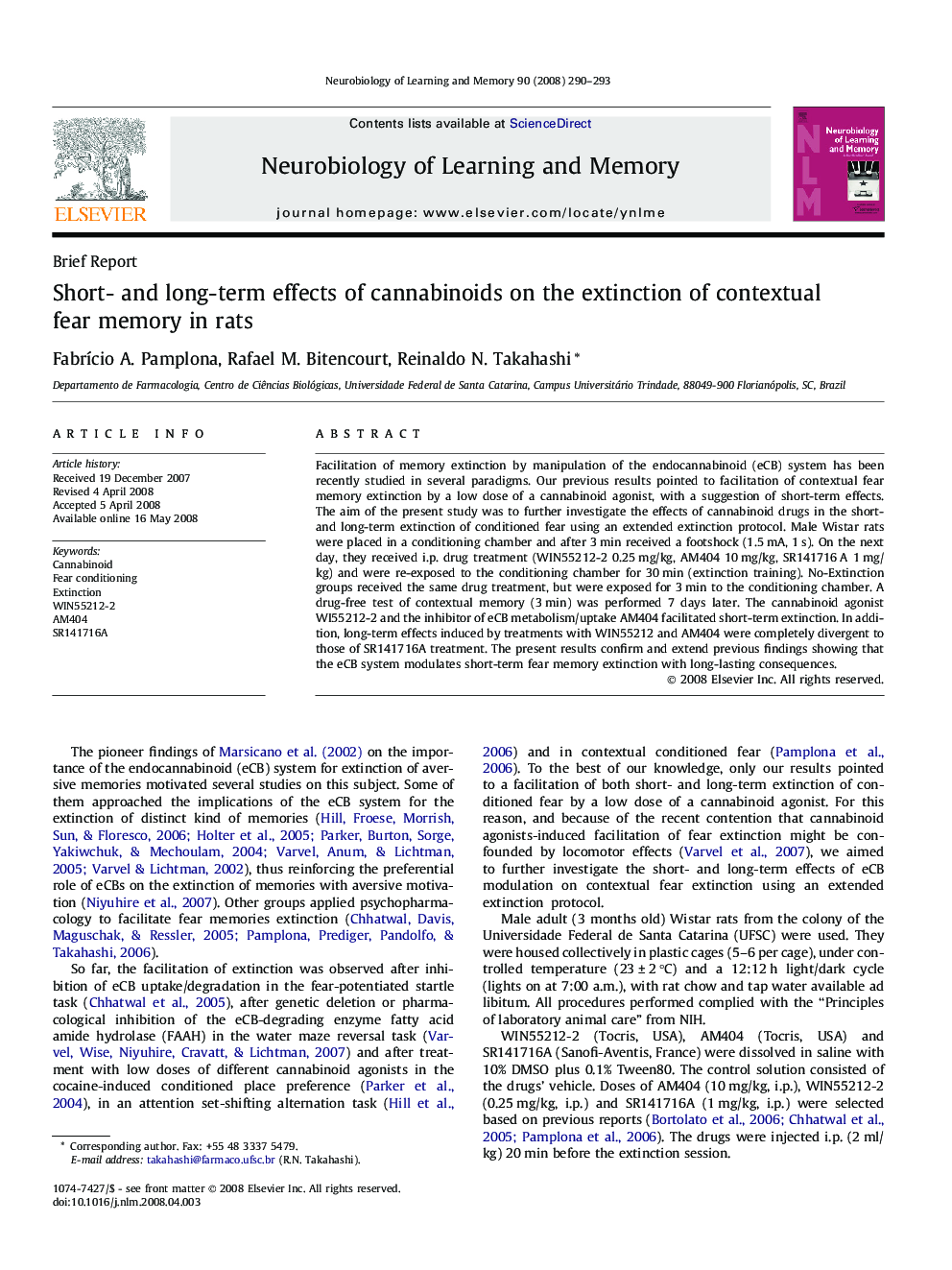| Article ID | Journal | Published Year | Pages | File Type |
|---|---|---|---|---|
| 937201 | Neurobiology of Learning and Memory | 2008 | 4 Pages |
Facilitation of memory extinction by manipulation of the endocannabinoid (eCB) system has been recently studied in several paradigms. Our previous results pointed to facilitation of contextual fear memory extinction by a low dose of a cannabinoid agonist, with a suggestion of short-term effects. The aim of the present study was to further investigate the effects of cannabinoid drugs in the short- and long-term extinction of conditioned fear using an extended extinction protocol. Male Wistar rats were placed in a conditioning chamber and after 3 min received a footshock (1.5 mA, 1 s). On the next day, they received i.p. drug treatment (WIN55212-2 0.25 mg/kg, AM404 10 mg/kg, SR141716 A 1 mg/kg) and were re-exposed to the conditioning chamber for 30 min (extinction training). No-Extinction groups received the same drug treatment, but were exposed for 3 min to the conditioning chamber. A drug-free test of contextual memory (3 min) was performed 7 days later. The cannabinoid agonist WI55212-2 and the inhibitor of eCB metabolism/uptake AM404 facilitated short-term extinction. In addition, long-term effects induced by treatments with WIN55212 and AM404 were completely divergent to those of SR141716A treatment. The present results confirm and extend previous findings showing that the eCB system modulates short-term fear memory extinction with long-lasting consequences.
